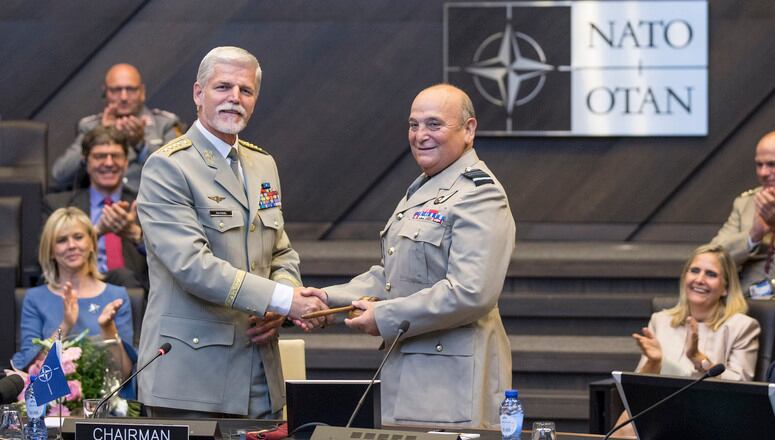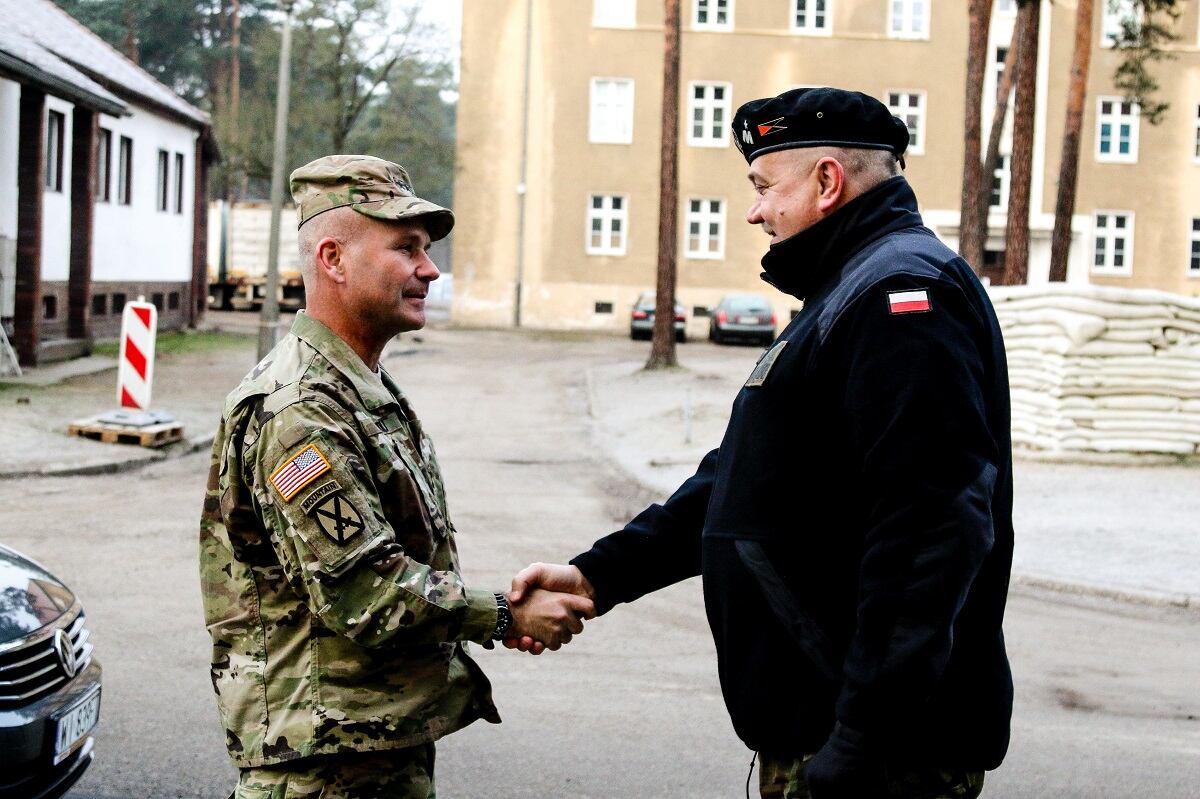COLOGNE, Germany ― As German Chancellor Angela Merkel recited her trans-Atlantic convictions in a speech before lawmakers this week, unease is growing in Germany about the upcoming NATO summit and the message sent there by U.S. President Donald Trump.
It is possible that the U.S. president will play the role of a diplomatic head of state in Brussels, critical but also mindful of the type of friendship that can perhaps spring only from the suffering of a most dark time. But equally likely ― some say even more so ― is a scenario in which Trump so heftily disparages the bonds with Europe, and Germany in particular, that political analysts will need to come up with yet new analogies to describe the situation.
Defence Minister Ursula von der Leyen’s visit to the Pentagon this month helped soothe German fears of a further escalation of the debate over military spending. Her counterpart, Jim Mattis, told reporters he appreciates Germany’s planned defense increase in the out years. His comments also suggest he is amenable to a narrative that leaders in Berlin badly want to be understood by the rest of NATO — namely that financial contributions should not be the only yardstick in measuring a member’s commitment to the cause.
RELATED

But recent news reports about Mattis allegedly falling out of favor with Trump didn’t go unnoticed in Europe, leaving officials guessing how much the retired Marine’s words will matter once the summit comes around. Many here consider Mattis as Europe’s only remaining advocate in a U.S. administration more interested in Russia and North Korea than the Old World.
The Guardian reported Thursday that Mattis’ future is “in question,” citing former administration officials and analysts. According to NBC, the defense secretary was left out of the loop on key decisions surrounding Washington’s rejection of the Iran nuclear deal and the pause in joint military exercises with South Korea in an attempt to appease North Korean leader Kim Jong Un.
\On a strictly factual level, there is more agreement between Washington and Berlin on the issue of defense spending than one would assume. Trump wants Germany to spend 2 percent of gross domestic product on defense by 2024, as agreed by all NATO members at the Wales summit in 2014.
The Merkel government says it wants the same, but current financial plans fall short of the goal.
As Germany’s economy keeps growing, the 2 percent military-budget objective has become such a rapidly moving target that reaching it would mean an increase too massive for the armed forces to quickly absorb; even the most hawkish German defense advocates agree.
The counterargument to any increase is that management structures at the Defence Ministry must first be improved before any rise in funding beyond the uptick already on the books can be given to the Bundeswehr. That sentiment is especially prevalent in the ranks of Social Democrats, who nabbed the Finance Ministry post when Cabinet responsibilities were handed out among the two coalition parties earlier this year.
Finance Minister Olaf Scholz has crafted a federal budget under the premise that no additional debt would be accrued. And whatever might become available through additional tax revenue would flow mostly toward education, broadband internet connectivity and other domestic programs.
As it stands, the strategy would leave von der Leyen’s request for €12 billion (U.S. $14 billion) more through 2021 unmet. Defense official argue the money is urgently needed to fix the Bundeswehr’s serious equipment shortfalls.
RELATED

In making the argument for greater defense spending domestically, German officials find themselves in a position of having to disavow Trump’s role in the funding push just so the proposal has a chance of flying.
“Regardless of the debate over percentage points, Germany will have no choice but to increase its defense spending more considerably than is currently planned ― not because the United States demands this but because the state of the Bundeswehr and Germany[’s] international role requires it,” Karl-Heinz Kamp, president of the Federal Academy for Security Policy, a government think tank, told Defense News.
Wolfgang Ischinger, a former German ambassador in Washington and now head of the of the annual Munich Security Conference, predicted a “heavy thunderstorm” coming from Trump at the NATO summit on July 11 and 12 over Germany’s defense spending.
The Merkel government, Ischinger urged, should make a Cabinet-level decision to increase defense spending to the level requested by the Defence Ministry before the summit. This should happen for the sake of Germany’s security, and “not to appease Trump,” he wrote in a blog post on the Munich Security Conference website earlier this month.
At the same time, Germany should make a sincere effort to strengthen the defenses of the European Union ― even if that means abandoning the policy of debt-neutral budgets, according to Ischinger.
Merkel still continues to root for the trans-Atlantic NATO partnership, even if Washington may not feel the same way.
“We are convinced that this alliance remains central for our collective security,” she said in a speech before lawmakers Thursday as she made the case for spending 1.5 percent of GDP on defense by 2024.
Meanwhile, the Munich Security Conference organization on Friday hosted Richard Grenell, the U.S. ambassador in Germany and an ardent Trump supporter who has clashed with politicians in Germany, to an exchange of views with members of parliament in Berlin.
According to a photo of the event tweeted by the organizers, croissants were served.
Sebastian Sprenger is associate editor for Europe at Defense News, reporting on the state of the defense market in the region, and on U.S.-Europe cooperation and multi-national investments in defense and global security. Previously he served as managing editor for Defense News. He is based in Cologne, Germany.








